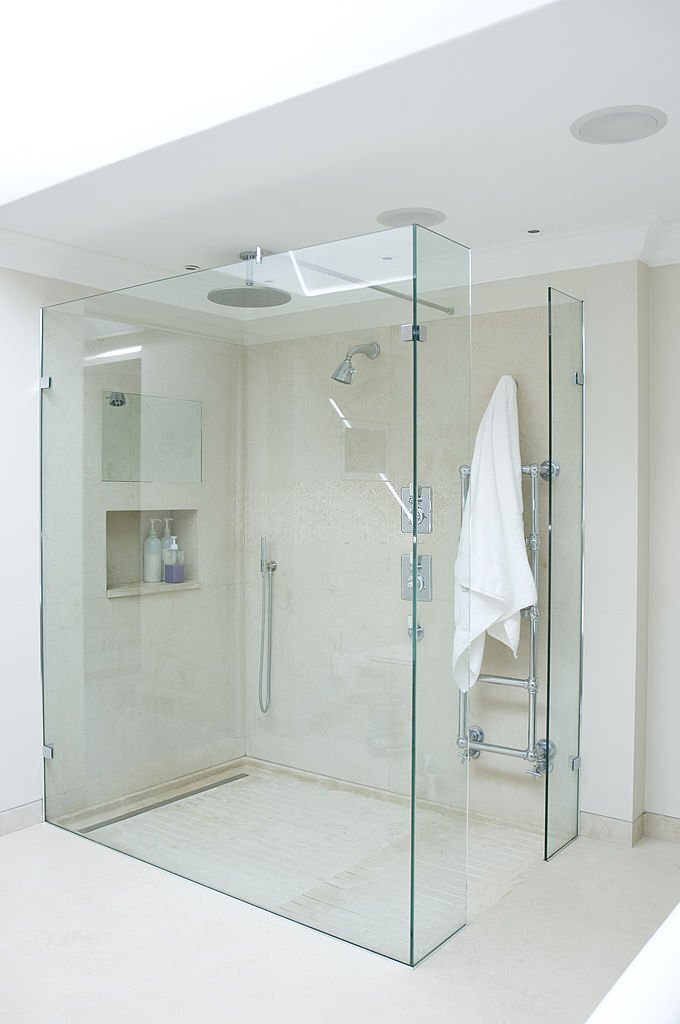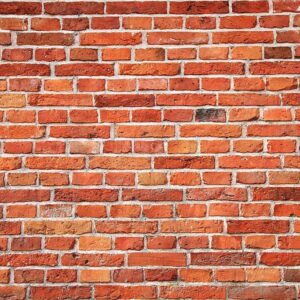Introduction
Maintaining clean and clear shower glass is important for many reasons, from hygiene and aesthetics to safety and durability. Let’s examine the details of why shower glass cleaning is a priority:
Hygiene and sanitation: The shower is where we clean ourselves, and keeping the glass clean ensures a hygienic environment. Soap scum, mineral deposits, and mold can accumulate on the glass surface, providing a breeding ground for bacteria, fungi, and other pathogens. Regular cleaning prevents these contaminants from accumulating, reducing the risk of infection and skin irritation.
Aesthetics and visual appeal: Clean and clear shower glass contributes to the overall aesthetics of the bathroom. Cloudy or dirty glass can make the entire bathroom look unclean and uninviting. On the other hand, shiny and transparent glass enhances the visual appeal, making the bathroom look more spacious and attractive.
Safety: Dirty and unclear shower glass can be dangerous. Soap scum and hard water deposits can create a slippery surface, increasing the risk of slipping and falling when entering or exiting the shower. Additionally, if the glass is covered with dirt, it can be difficult to see clearly, which can lead to accidents or collisions with glass doors or walls.
Durability and Longevity: Regular maintenance and cleaning can extend the life of shower glass. Soap scum, hard water stains, and mineral deposits can penetrate the glass surface over time, causing permanent damage or requiring expensive replacement. By keeping the glass clean, you can prevent such damage and maintain its structural integrity.
Transparency and light protection: Clear shower glass allows light to pass freely, brightening the shower area and making it feel more open and inviting. On the other hand, dirty or fogged glass can block light, making the shower space appear dark and small.

Cloudy or dirty glass in showers is a common problem caused by a variety of factors, including hard water stains and soap scum. Understanding these contributing factors can help develop effective cleaning strategies to keep glass clean and clear. Let’s discuss each of these factors in detail:
Factors contributing to foggy or grimy glass, such as hard water stains and soap scum.
Hard water stains: Hard water contains dissolved minerals such as calcium and magnesium. When hard water comes into contact with glass surfaces, it can leave mineral deposits behind as the water evaporates. Over time, these mineral deposits form cloudy or white spots on the glass, known as hard water stains. These stains are particularly stubborn and can be difficult to remove with regular soap and water.
Soap scum: Soap scum is a filmy residue created by combining soap or shampoo with hard water. When soap or shampoo is used in the shower, it combines with the minerals in the hard water to form a sticky, greasy substance that sticks to shower surfaces, including glass. As soap scum builds up, it can cause a cloudy or cloudy appearance on the glass.
Moisture and humidity: Bathrooms are naturally humid environments, especially during and after bathing. High humidity levels promote condensation on glass surfaces. When water droplets evaporate, they leave behind traces of mineral deposits and soap residue, further contributing to glass fogging and fouling.

Lack of ventilation: Inadequate ventilation in the bathroom can exacerbate the problem of fog and dirty glass. Adequate ventilation helps expel humid air, reducing the chance of condensation on glass surfaces. Without proper ventilation, humidity can persist in the bathroom, which encourages the accumulation of soap scum and hard water stains.
Occasional cleaning: If shower glass is not cleaned regularly, soap scum and hard water stains take longer to build up and become more difficult to remove. With occasional cleaning, these deposits become more stubborn and stick to the glass surface, making them difficult to clean effectively.
Ineffective cleaning products: Some cleaning products may not be effective at removing tough water stains and soap scum. Using the wrong products or misusing them may not produce the desired results, leaving the glass still dull and dirty.
Low-abrasive formula: Avoiding damage to glass surfaces:
A low-abrasive formula refers to a cleaning solution or product designed to be gentle on surfaces and reduce the risk of damage, especially to delicate materials such as glass. When it comes to cleaning glass surfaces, using a less abrasive formula is essential to ensure that the glass remains clean, scratch-free and structurally intact. Let’s go over the details of why a less abrasive formula is important to avoid damaging glass surfaces:
Preserves clarity and transparency: Glass surfaces, such as shower doors, windows, or glass tabletops, are meant to be transparent. Any scratches or damage to the glass can impair its clarity, making it look unsightly and reduce its functionality. The low-abrasive formula ensures that the glass remains smooth and scratch-free, maintaining its original clarity and appearance.
Prevents Etching: Glass is susceptible to etching when exposed to abrasive materials or cleaning agents. Etching occurs when the surface of the glass is eroded by abrasive particles, giving a cloudy or frosted appearance. Low-abrasive formulas avoid this problem by using non-abrasive ingredients that gently clean glass without damaging it.
Extends the life of glass: Glass surfaces are designed to be durable and long-lasting, but the use of harsh or abrasive cleaning agents can degrade their integrity over time. The low-abrasive formula helps maintain the structural strength and overall condition of the glass, extending its life and reducing the need for premature replacement.
Safe for coated or treated glass: Some glass surfaces may have protective coatings or treatments, such as anti-glare coatings, water-repellent coatings, or UV protection. Using abrasive cleaners can wear away these coatings, making them less effective or completely useless. Low-abrasive formulas are gentle enough to not compromise these protective layers.
Ideal for delicate glass surfaces: In addition to ordinary glass, there are various types of special glass used in architecture and design, such as frosted glass, stained glass, and tempered glass. These delicate surfaces require extra care, and low-abrasive formulas provide a safe and convenient cleaning solution without the risk of damage.
Types of Glass Cleaners for Showers
Foam cleaners are special cleaning products that are formulated to produce foam or foam when dispensed. These foam cleaners offer many advantages over traditional liquid or spray cleaners, mainly due to their superior cleaning and targeted application. Let’s explore the details of how foam cleaners work and the benefits they provide:
Better Cling: A key advantage of foam cleaners is their ability to stick to vertical or inclined surfaces such as shower walls, tiles or glass doors. Unlike liquid cleaners that break down quickly, foam cleaners have a thicker consistency that allows them to stay on surfaces for a much longer period of time. This increased tweezer ensures that the cleaning agent stays in contact with dirt, grime and stains, leading to a more effective cleaning action.
Targeted application: Foam cleaner can be applied directly to areas that require cleaning, providing a precise and targeted application. This feature is especially useful for spot cleaning or dealing with specific problem areas, such as soap scum in the shower or grease splatters on kitchen surfaces. The foam can be sprayed exactly where it is needed, minimizing waste and making the cleaning process more efficient.
Less dripping and run-off: Traditional liquid cleaners can drip or run-off when applied to vertical surfaces, leading to potential messes or uneven cleaning. Foam cleaners, on the other hand, adhere better to the surface, reducing the chance of dripping or runoff. This helps maintain a clean work area and ensures that the cleaning agent stays where it is needed most.
Increased Contact Time: The foaming action of these cleaners allows the cleaning active ingredients to stay on the surface longer. This extended contact time increases cleaning efficacy because the cleaning agent can more effectively penetrate and break down stubborn stains, dirt, and grime.
Improved Penetration: The foam consistency allows the cleaner to penetrate porous or textured surfaces, such as grout lines, without being quickly absorbed or diluted. This deep penetration ensures that the cleaner reaches hidden areas and removes dirt and stains from hard-to-reach areas.
Less waste: Foam cleaners are usually dispensed in a controlled manner, reducing the risk of overuse. Users can apply the foam directly to the target area without overspray, reducing product waste and more economical use of the cleaning agent.
Comparing Popular Glass Cleaners on the Market
Cleaning efficiency: Consider the glass cleaner’s effectiveness in removing dirt, grime, fingerprints and other stains. Look for products that provide streak-free cleaning and leave glass surfaces shiny and clean.
Versatility: Some glass cleaners are designed for specific types of glass surfaces, while others are suitable for multiple surfaces. Check if the product can be used on different glass surfaces, mirrors, windows and other materials without damage.
Safety and Environmental Impact: Review product safety information and environmental impact. Look for cleaners that are non-toxic, biodegradable and eco-friendly to minimize harm to consumers and the environment.
Ease of use: Consider ease of use and ease of use. Look for products with user-friendly packaging, spray nozzles and instructions for best results.

Residue and Streaks: Check if the glass cleaner leaves any residue or streaks after cleaning. A high-quality glass cleaner should leave surfaces clean and streak-free.
Fragrance: Consider the fragrance of the glass cleaner, especially if you or other product users are sensitive to strong odors.
Price and value for money: Compare the price of the product with its effectiveness and quantity supplied. Sometimes, a slightly more expensive product may offer better results or require less use per application, making it more cost-effective in the long run.
You May Like: Ultimate Guide to choose perfect shower curtains
Conclusions :
In this comprehensive guide, we’ve delved into the world of shower glass cleaners, which aim to transform dull and dingy glass into a sparkling and stunning sight. Maintaining a clean and clear shower glass is not only important for aesthetics, but also for a more enjoyable showering experience. With the right glass cleaner, you can say goodbye to stubborn stains, soap scum, and streaks that often mar the beauty of your shower wall.
Understanding the challenges of shower glass maintenance, we highlighted the factors that contribute to foggy or dirty glass, such as hard water stains and soap scum. We’ve established that regular household cleaning products can fall short when it comes to restoring shower glass to its pristine condition. Specialized glass cleaners designed to deal with these specific problems emerged as the ultimate solution.
Throughout this guide, we’ve explored the essential features of a perfect glass cleaner. From low-abrasive formulas that protect glass surfaces to streak-free performance, Ideal Glass Cleaner ensures crystal-clear results without the hassle. Additionally, we emphasized the importance of choosing products that are safe for different types of glass as well as effectively remove tough water stains and soap scum. Considering non-toxic and eco-friendly options allows us to take more care of our health and the environment.






